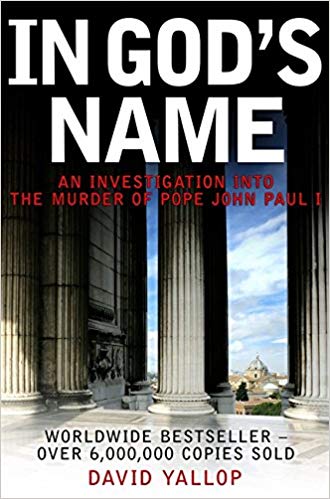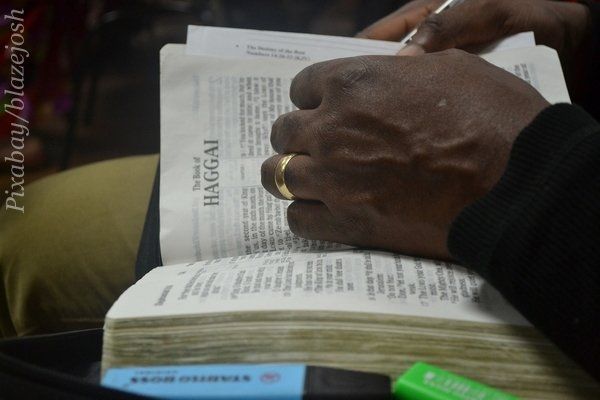Roman Catholicism has recently achieved a markedly enhanced public image. There have been greatly publicized converts — the Duchess of Kent, former Conservative government ministers such as Ann Widdecombe, Alan Clark and John Gummer. On moral issues, especially abortion, the clear-cut statements of Cardinal Hume and the Archbishop of Glasgow have captured the interest of the media. John Paul has meantime sustained a massive covering by press, radio and television.
What has not been publicized is the continuing decline in the Catholic Church, not only in the country, but across the world. The Catholic Directory for 1996 disclosed that the number attending mass dropped by nearly 200,000 in the years 1988-1995. The figures for 1995 showed a fall of 3%. There has also been a major drop in the emergence of young men for the priesthood. The average age of a priest has risen and only the return of missionary priests has eased the situation.
These are not figures confined to the UK. There has been a world-wide drop in the number of priests and huge numbers have resigned. Latin America has lost vast numbers who have left Rome.

The high moral tone has been greatly sullied by scandals. There was the sordid financial dealings of the Vatican Bank which David Yallop linked in his book In God’s Name with the death in very suspicious circumstances of John Paul 1. Then in Ireland there was the shock of Bishop Casey who not only concealed his son but had utilized diocesan funds to maintain his son and the mother. That was followed by even graver offences in terms of the abuse of children, whether sexually or by the cruelty of some nuns in orphanages. Ireland, one of the bastions of world Catholicism, had the extraordinary spectacle of the Cardinal Archbishop of Armagh publicly apologizing for the failure of church authorities who had covered up the scandals by moving guilty priests to another area where they were free to continue their abuse.
Meanwhile the pope grows older and the query in many circles is the likelihood of a different kind of pope — perhaps a more liberal figure. The same thought has seemingly been in the present pope’s mind; witness his appointment of many new cardinals. They will form the conclave for the election of the next pope. Not surprisingly, those appointed have been conservative men who are likely to choose the kind of traditionalist who will maintain the present pope’s doctrinal position.

In spite of the beguiling smile and the oft repeated visits to adoring multitudes, the present pope has maintained an unyielding adherence to the most unreformed doctrines of Rome. This has been seen in an especially vivid way in his cultivation of devotion to Mary — not the Mary of Nazareth but the Mary of pagan lineage. The pope’s Mary is successor to the mother goddess of ancient paganism.
Paul VI had taken a firm line in terms of the cult of the Virgin which he endorsed in the encyclical Cultus Marialis. But the present pope has gone further still. He has relished visiting Marian shrines around the world. Indeed he claims these to have been the highlights of his papacy. His credulity on the issue of Mary seems to know no bounds. Any legend of the past and any claim by some deluded soul — these are not only tolerated or accepted but exalted in with unfettered devotion.
When the Vatican Catechism of 1994 was published it was clear that Rome had not shed any of her unbiblical dogmas. The naive claims of some evangelicals that Rome has changed, face the firm rebuttal of the Catechism. Here is a reassertion of the Roman Catholicism of the Council of Trent and the Vatican councils. Here are the claims of the papacy to infallibility and authority. Here are the sacramental errors of baptismal regeneration, transubstantiation and the sacrifice of the mass. Lest anyone should see some evidence of fundamental change, the pope’s preface to the Catechism is a wholehearted appeal to ‘Mary’ — ‘I beseech the Blessed Virgin Mary, Mother of the Incarnate word and Mother of the church, to support with her powerful intercession the catechetical work of the entire Church.’

Our concern however is not simply to expose the errors of the Vatican. Our aim and the focus of our praying are to see men and women, boys and girls brought to the Saviour. If we live in a predominantly RC population or in a country with a substantial minority then our evangelistic concern will embrace Roman Catholics in the same way that evangelistic outreach in other lands will focus on nominal Protestants. But whether those we seek to reach are Jews or Muslims, Hindus or Buddhists, Catholics or Protestants, there is only one gospel. We will be summoning people to reject errors, but our primary message will be Paul’s on Mars Hill: ‘God now commands all men everywhere to repent’ (Acts 17:30).
A former Roman Catholic put it like this: ‘Why’, “she asked”, ‘do people speak about ‘converted Catholics? Why don’t they speak of converted Protestants? Do Protestants not need to be converted?’ Our emphatic answer would be — indeed they do! In fact they may be even harder since they think they are already Christians! This means that we must take care to avoid identifying our gospel with our political convictions. We may vote for the left or the right. In Ireland we may be unionist or nationalist. But our man-made distinctions are to be judged by gospel standards. There is one overriding truth, namely that we are all, without exception, needing a Saviour. What marks us out is that we are either lost or saved by the grace of God.

Whoever may be the object of our witness, their receptiveness often begins when they see the quality of life exhibited in an evangelical believer. That applies whether the witness is directed to a Catholic or a Protestant. ‘Let your light so shine before men that they may see your good works and glorify your Father who is in heaven’ (Matthew 5:16). Those words’ of Jesus are echoed by Paul as he reminds the Philippians that they are to shine ‘as lights in the world (Philippians 2:15). I recall one man in Ireland who was brought to Christ by the integrity of his employer. He began with the verdict on his boss that the latter was just putting on a show. So he watched him with a close scrutiny — how did he treat his workers? How did he behave in his family? The critic was finally driven to acknowledge the genuineness of his employer’s profession. Many Catholics in Ireland are disillusioned. They have heard the ecclesiastical clap-trap as they now see it. How powerful is the testimony of a consistent godliness!

The witness, whether of the spoken word or the consistent life, must ultimately point to the Scriptures. This is one area where we may be thankful for change in Rome. In my student days in Dublin the Bible was largely a forbidden book. Even by the 1970s I recall the acknowledgement of a Mother Superior that these Baptists knew their Bible! I recall more recently a gospel preacher cradled and reared in Catholicism yet testifying to the thrill of reading Hebrews 10:11 for the first time with its rebuttal of the notion of a sacrificing priesthood. I recall a couple with a similar background brought to Christ as they read the Bible together. The need of the hour, whether for Catholics or Protestants, is the powerful and liberating testimony of the Scriptures.






